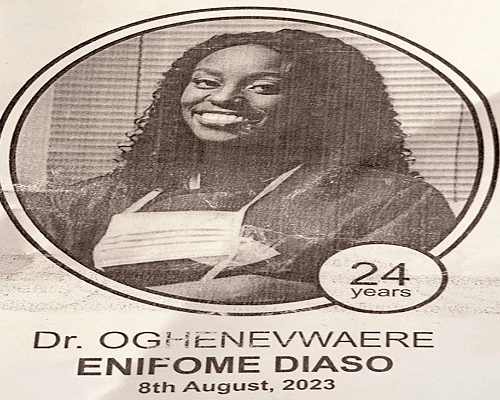Researchers have found that “a weight-centric approach to obesity treatment and prevention has been largely ineffective” and that people should concentrate on exercise not dieting when it comes to cutting the risk of dying early.
People can be “fat but fit” and should focus on exercise rather than dieting for a longer life, experts have said.
In a new review collating numerous studies, researchers said doing more exercise and improving fitness is more effective than just shedding pounds when it comes to getting healthy and cutting the risk of dying early.
Writing in the journal iScience, Professor Glenn Gaesser, from Arizona State University, and associate professor Siddhartha Angadi, from the University of Virginia, claimed that applying a “weight-neutral” approach to the treatment of health issues caused by obesity would also cut the health risks associated with yo-yo dieting.
Prof Gaesser said: “We would like people to know that fat can be fit, and that fit and healthy bodies come in all shapes and sizes.
“We realise that in a weight-obsessed culture, it may be challenging for programmes that are not focused on weight loss to gain traction.
“We’re not necessarily against weight loss; we just think that it shouldn’t be the primary criterion for judging the success of a lifestyle intervention programme.”
The researchers said multiple studies have shown how people around the world have been trying to lose weight over the past 40 years, and yet obesity has continued to rise.

They said “a weight-centric approach to obesity treatment and prevention has been largely ineffective”, adding: “Moreover, repeated weight loss efforts may contribute to weight gain, and is undoubtedly associated with the high prevalence of weight cycling (yo-yo dieting), which is associated with significant health risks.”
The pair pointed to studies suggesting that exercise was better for a longer life than just losing weight.
They argued that “many obesity-related health conditions are more likely attributable to low physical activity and cardiorespiratory fitness rather than obesity per se”.
“Epidemiological studies show that cardiorespiratory fitness and physical activity significantly attenuate, and sometimes eliminate, the increased mortality risk associated with obesity,” they said.
Studies have also found that “increasing physical activity or cardiorespiratory fitness is consistently associated with greater reduction in risk of all-cause and cardiovascular mortality than intentional weight loss”.
However, the researchers said that adopting a weight-neutral approach “does not mean that weight loss should be categorically discouraged”, particularly when so many people do desire to lose weight.
“But shifting the focus away from weight loss as the primary goal, and instead focusing on increasing physical activity to improve cardiorespiratory fitness, may be prudent for treating obesity-related health conditions,” they said.
In one study (the Nord-Trondelag Health Study), during a follow-up of almost 16 years of adults with coronary heart disease, sustained low physical activity was associated with 19% lower risk of dying from any cause and sustained high physical activity was associated with a 36% lower risk of death, when compared with people who were inactive.
In comparison, weight loss was associated with a 30% increased risk of death but there was no increased risk of death caused by weight gain.
Overeating ‘not the primary cause of obesity’, claim scientists
Significant links between obesity and deprivation add evidence to an argument that low-quality food, in particular processed carbohydrates, are driving weight gain.
Overeating is not in fact the primary cause of obesity, according to a new perspective on weight gain published by scientists.
Obesity affects more than 40% of American adults, according to the US Centers for Disease Control and Prevention, and 28% of adults in England, according to the Health Survey for England 2019.
This places a significant proportion of the population at greater risk of heart disease, stroke, type two diabetes, and certain types of cancer – and obesity is more likely to affect people living in deprived areas.
NHS data suggests that more than 11,000 hospital admissions over 2018-19 were directly attributable to obesity – and admissions where obesity was a factor were around two and half times more likely in the most deprived areas compared to the least deprived areas.
A new paper explaining the causes has been published in the American Journal of Clinical Nutrition, claiming there are fundamental flaws in the energy balance model, and tying obesity to the consumption of low-quality food and processed carbohydrates.
The authors argue that an alternate model, the carbohydrate-insulin model, better explains obesity and points the way to more effective and long-lasting weight management strategies.
Lead author Dr David Ludwig, an endocrinologist at Boston Children’s Hospital and professor at Harvard Medical School, says that the energy balance model doesn’t explain the biological causes of weight gain.
“During a growth spurt, for instance, adolescents may increase food intake by 1,000 calories a day,” he says. “But does their overeating cause the growth spurt, or does the growth spurt cause the adolescent to get hungry and overeat?”
The new model placed the blame for the obesity epidemic on “modern dietary patterns characterised by excessive consumption of foods with a high glycaemic load: in particular, processed, rapidly digestible carbohydrates”.
“These foods cause hormonal responses that fundamentally change our metabolism, driving fat storage, weight gain, and obesity,” according to the model.
“When we eat highly processed carbohydrates, the body increases insulin secretion and suppresses glucagon secretion. This, in turn, signals fat cells to store more calories, leaving fewer calories available to fuel muscles and other metabolically active tissues.
“The brain perceives that the body isn’t getting enough energy, which, in turn, leads to feelings of hunger. In addition, metabolism may slow down in the body’s attempt to conserve fuel. Thus, we tend to remain hungry, even as we continue to gain excess fat.”
Rather than urge people to eat less, a strategy which the scientists say doesn’t work in the long run, the carbohydrate-insulin model suggests another path that focuses more on what we eat.
According to Dr Ludwig, “reducing consumption of the rapidly digestible carbohydrates that flooded the food supply during the low-fat diet era lessens the underlying drive to store body fat”, and “as a result, people may lose weight with less hunger and struggle.”
Sky News






















